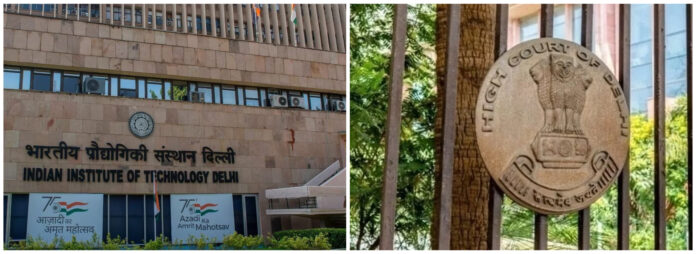In a significant directive, the Delhi High Court (HC) has emphasized the need for Indian Institutes of Technology (IITs) to prioritize counseling services for students. The court’s pronouncement underscores a broader perspective on education, shifting the focus away from academic marks as the sole measure of success.
The Court’s Guidance:
The Delhi HC has issued a noteworthy directive to IITs, urging them to extend counseling services to students. The court emphasizes that while academic excellence is important, it should not be the sole determinant of a student’s well-being and success in life.
A Holistic Approach to Education:
The court’s guidance encourages IITs to adopt a more holistic approach to education. Recognizing that life encompasses various challenges and opportunities, the court highlights the importance of providing students with the necessary support and guidance to navigate both academic and personal spheres.
Debunking the Marks-Centric Approach:
The traditional emphasis on high academic marks as the primary indicator of success has long been a point of contention in the Indian education system. The court’s stance challenges this norm, suggesting that a myopic focus on grades may overlook the broader spectrum of skills and attributes essential for a well-rounded and successful life.
Marks vs. Life Skills:
While academic achievements are undeniably valuable, the court underscores the significance of imparting life skills and emotional intelligence to students. The ability to navigate challenges, communicate effectively, and make informed decisions are crucial aspects of personal development that extend beyond the realm of traditional academic pursuits.
Addressing Mental Health Concerns:
The directive comes at a time when mental health issues among students are gaining increased attention. The court’s emphasis on counseling services indicates a recognition of the psychological toll that academic pressure and competition can take on individuals, necessitating proactive measures to support students’ mental well-being.
Incorporating Life Lessons in Education:
The court’s recommendation aligns with a broader societal shift towards acknowledging the importance of life skills in education. Many argue that the current education system, with its intense focus on examinations and grades, often falls short in preparing students for the challenges and complexities of real-world scenarios.
The Role of Educational Institutions:
Educational institutions, particularly premier institutes like IITs, play a pivotal role in shaping the future of the country’s youth. The court’s directive serves as a reminder that these institutions have a responsibility not only to impart academic knowledge but also to foster an environment that nurtures the holistic development of students.
Conclusion:
As the Delhi HC advocates for a paradigm shift in the approach to education, it opens up a broader conversation about the purpose and goals of the Indian education system. By urging IITs to provide counseling and emphasizing that marks are not the sole measure of success, the court signals a move towards a more balanced and comprehensive educational experience that prepares students not just for exams but for life.






















